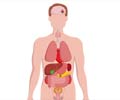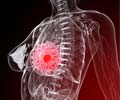Family history may not be a good predictor of the presence of mutations predisposing to autism or schizophrenia, an international study has said.

"This study emphasizes the importance of de novo mutations as genetic factors predisposing to autism and schizophrenia. We found an increased frequency of severe de novo mutations in critical brain genes in both of these diseases," says senior author and University of Montreal professor, Guy Rouleau.
"Harmful de novo mutations, as observed in this study, may in part explain the high global incidences of autism and schizophrenia," adds Dr. Rouleau, who is also director of the Sainte-Justine University Hospital Research Center and a scientist at the University of Montreal Hospital Research Centre.
Investigating human mutation rate: The team analyzed 400 genes that are turned on in nerve cells from patients with autism or schizophrenia spectrum disorders. Their results showed that there is an excess of de novo gene mutations associated with the two diseases.
Their study revealed that DNA taken directly from the patient's blood was superior to that taken from patient-derived cell lines. "The source of biological material is crucial for these types of experiments," says lead author Philip Awadalla, a University of Montreal pediatrics professor, scientist at the Sainte-Justine University Hospital Research Center and scientific director of the CARTaGENE project.
"In the process of confirming our findings, we were also able to provide one of the first direct estimates of the human mutation rate," continues Dr. Awadalla. "The number of mutations per generation is extremely small but on the order of what was previously indirectly inferred for human-chimpanzee comparisons. We also discovered that mutations can be introduced when cell lines are produced, which creates false-positive results. This artefact can significantly bias results and therefore great care needs to taken when analyzing these samples."
Advertisement
Advertisement















